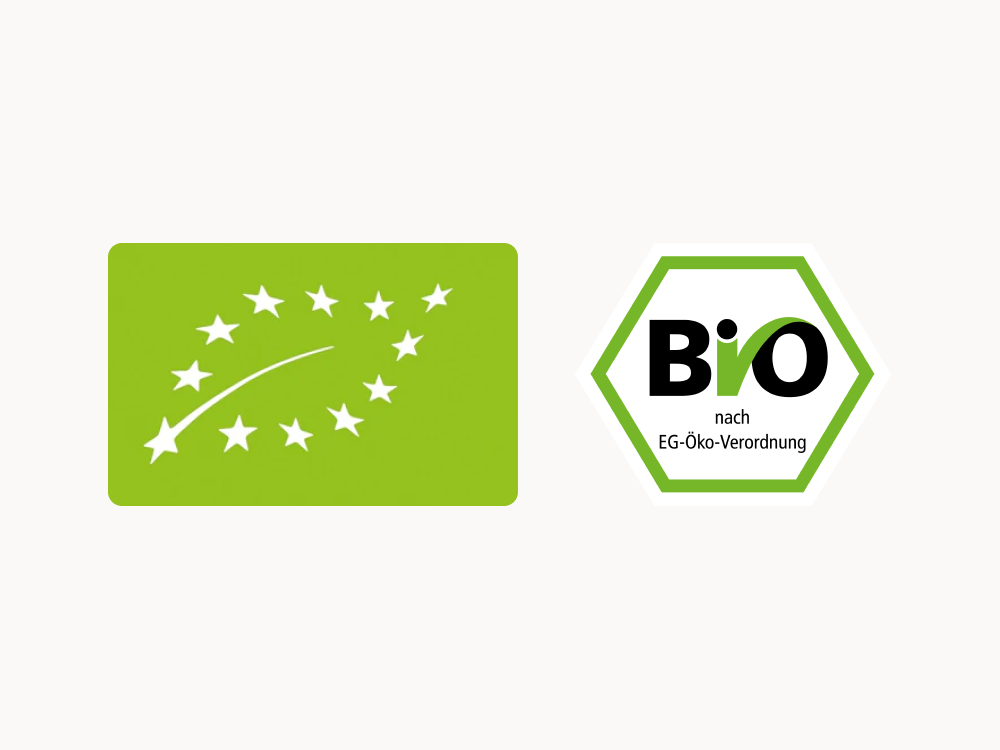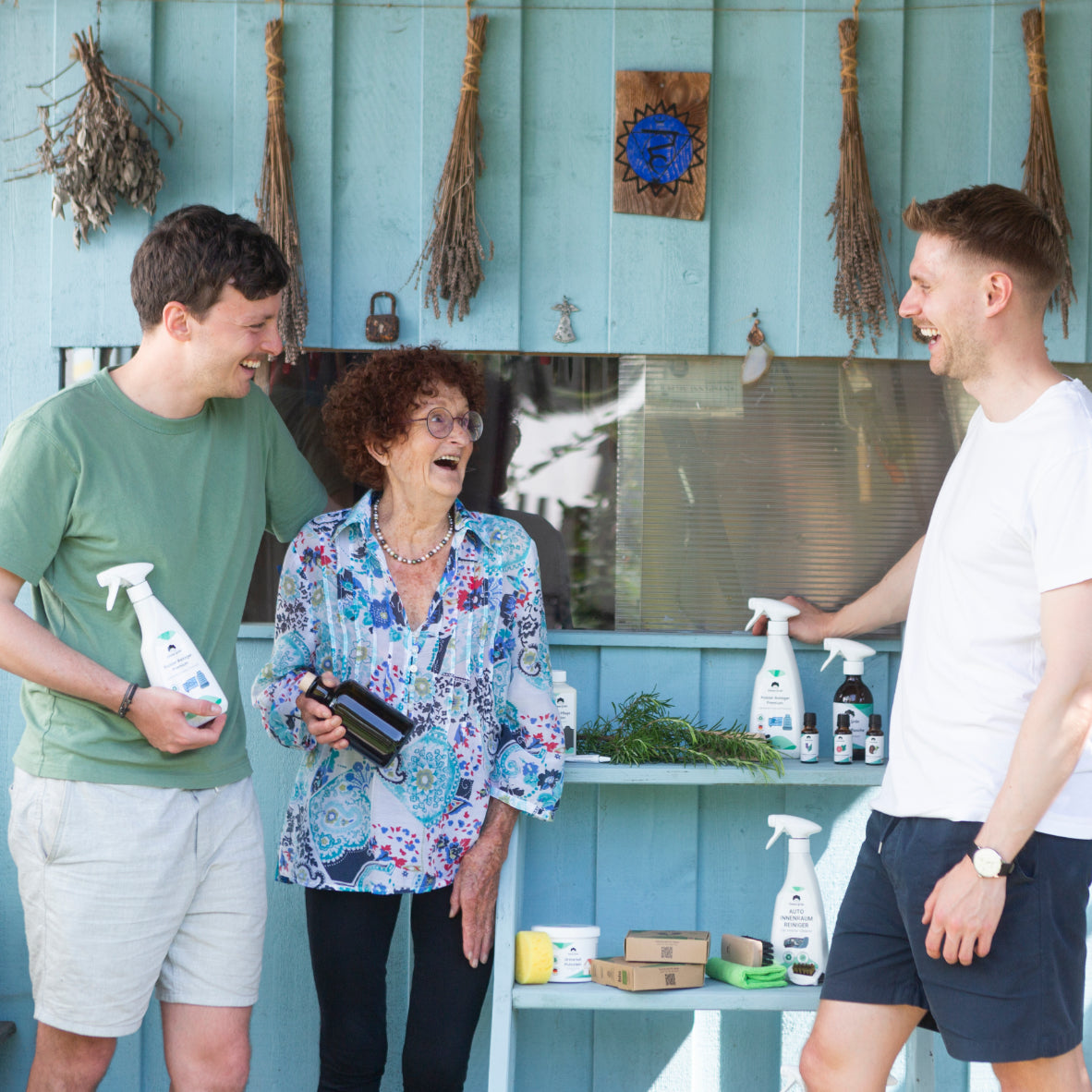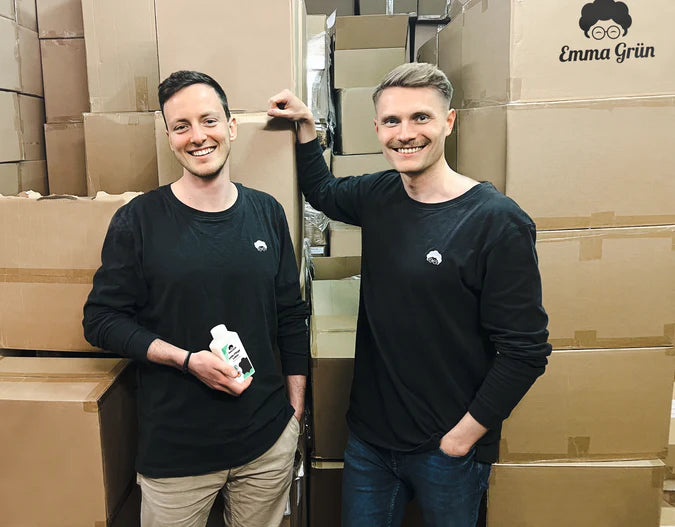Sensitive surfaces require appropriate care. But you should also be careful not to use overly aggressive cleaning products and utensils when cleaning. Because once the scratches are there, they cannot be undone and it will be a real hassle. To prevent a mishap like this from happening and to avoid being annoyed afterwards, we have a few good tips for you.
Cleaning the kitchen: tips & tricks for sensitive surfaces
Everyone knows it: Cleaning the kitchen is a tiresome subject. Not least because perfect hygiene is particularly important here. But cleaning and caring for the various materials that come together in a kitchen also gives many of us a headache. Various cleaning products and polishes as well as cleaning rags and the like are lined up in the kitchen cupboards and create a complete mess. The fact is: This doesn't have to be the case. Because once you have found the right sustainable products, you'll have an overview again. And let me tell you: there's no need for aggressive chemical products and scratchy sponges either!
Cleaning wood:
Wood is one of the most sensitive surfaces. To ensure that the beautiful appearance of the natural material is not affected, you have to be particularly careful when cleaning and caring for cupboards and worktops. That's why you should never clean stains with a wet cloth, but always with a damp cloth. But you can also do this wonderfully with a cleaning sponge for wooden furniture, such as those from Emma Grün.
To ensure that your wooden surfaces do not lose their natural appearance, you must also care for them properly after cleaning. Regular treatment with our rich furniture wax is ideal for this. It is best to use a soft polishing sponge to apply a very thin layer. It absorbs the nourishing care wonderfully and you can then work it gently into the wood without scratching the sensitive material. Good tip: always work the care product in the direction of the wood grain. This will bring out the beauty of the natural wood particularly well.
Cleaning natural stone surfaces:
Natural stone is also becoming more and more common in kitchens. The natural material is used particularly frequently for worktops. But be careful: stone surfaces are also sensitive and require gentle cleaning and care.
Depending on the type of natural material, there are big differences in sensitivity. Some are sensitive to heat, while others react to mechanical impacts. Slate and marble, for example, are allergic to stains and scratches. Acids contained in foods such as citrus fruits also leave unsightly stains on marble, which, if you don't react quickly enough, will be visible on the material forever.
To ensure that your stone surfaces are protected in the long term, you should only use special cleaning products for natural stone. Sealing afterwards is also recommended. This is the only way to prevent liquids from penetrating the surface of the natural material and leaving unsightly stains. Furthermore, you should never clean the sensitive stone with a scouring pad. This leaves unsightly scratches in which dirt and bacteria can easily collect, making the material even more vulnerable to external influences.
Cleaning glass surfaces:
Glass is one of the most resilient materials in the kitchen. It is easy to clean with water and a few drops of vinegar and does not require any additional care. However, the material is more sensitive to the eye than wood or natural stone, for example. Unfortunately, every tiny splash and every fingerprint becomes visible in a matter of seconds and is a reason to immediately grab the cleaning cloth.
However, you should also avoid alkaline detergents and cleaners containing fluoride for the sake of the environment and to protect your glass fronts. Although glass is resilient, aggressive cleaning agents are a no-go here too. The same applies to steel wool, scratchy kitchen sponges or razor blades: they cause disastrous scratches. For this reason, no matter how stubborn the dirt is, you should avoid using equipment like these!
Cleaning stainless steel surfaces:
Stainless steel in the kitchen looks exclusive and is a classic that never goes out of fashion. Unfortunately, the chic material is extremely sensitive to grease and fingerprints. If you use harsh cleaners and coarse cleaning sponges, the elegant look will quickly disappear. Instead, you can simply clean signs of wear like these with a mild sponge. A few drops of natural cleaning agent and a little water are completely sufficient for this. You can then wash your stainless steel surfaces with hot water and carefully dry them with a soft microfiber cloth. Your stainless steel will shine like before in a matter of seconds.
Good to know: Matt stainless steel should always be cleaned in the direction of the polish! No matter how soft the cloth is, you could otherwise damage the brushed surface.
Cleaning painted surfaces:
Lacquered surfaces are either matt or glossy. You can also choose between foil coatings and real lacquer finishes when buying a kitchen. In direct comparison, real lacquer is a little more difficult to care for than foil-coated fronts. If you use the right products, however, real lacquer scores points for its long durability and is also less susceptible to scratches. Neither type of surface can be cleaned with a microfiber cloth. Instead, you can remove discoloration and stains that tend to stick to the roughened surface of matt kitchens with a soft sponge and a little water and soapy water and then rub dry with a cloth.
High-gloss kitchen fronts made of real lacquer are smooth and have a closed surface. Dirt particles and residues can be easily removed from them. All you need is clean, soft cotton cloths and a mild cleaner. But be careful: keep your hands off scouring cream and scratchy sponges. They ruin all types of lacquered surfaces forever. Good tip: The super-soft foam care sponges are also suitable as a polishing sponge/car for your sensitive car paint and as a leather care sponge/car for your steering wheel and leather seats.
Leather surfaces:
Leather upholstery can be treated perfectly with a damp, soft cleaning utensil and a gentle leather cleaner that is based on natural ingredients such as plant-based surfactants. However, with leather you should remember to give it appropriate care after cleaning. The optimal protective layer is a nourishing leather care balm or a natural beeswax, which also act as an impregnator. Emma Grün's products meet all requirements. They pamper your leather and protect it at the same time. And all this without harmful and aggressive ingredients.
And the best thing is: your sensitive surfaces shine, the environment is happy and people are happy. That's how sustainable care works today.

















 Natalie, Sarah und über 204.199+ weitere Personen lieben Emma Grün.
Natalie, Sarah und über 204.199+ weitere Personen lieben Emma Grün.




















